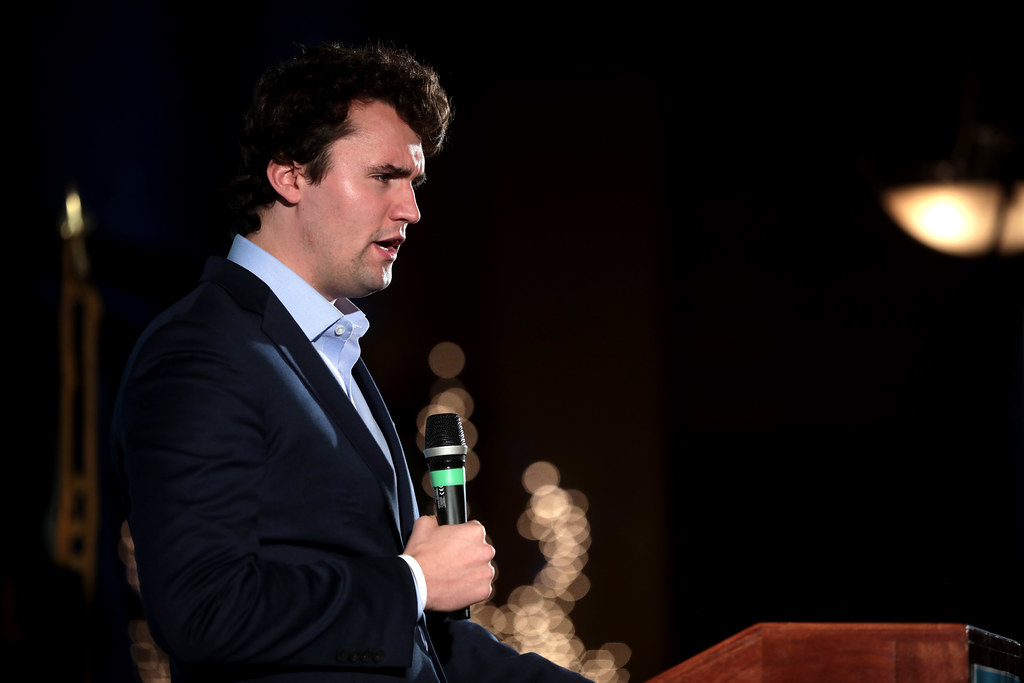Key takeaways:
- Speaker Mike Johnson says Charlie Kirk’s killing shifted mood on Capitol Hill.
- Lawmakers call for lowering political vitriol and adding security.
- Johnson warns heated rhetoric can inspire violence.
- Bipartisan push emerges for new safety measures in public spaces.
Capitol Hill Reacts to Charlie Kirk’s Death
Charlie Kirk, the co-founder of a national conservative student group, was shot while giving a speech on a college campus. His tragic death stunned lawmakers and staffers. Speaker of the House Mike Johnson said the mood in Congress feels different now. Indeed, many members worry that extreme rhetoric might lead to more violence.
Turning Down the Volume After Charlie Kirk’s Death
After the attack, Johnson appeared on television to discuss the fallout. He urged leaders and media voices to lower the intensity of their messages. He noted that some people seem to enjoy stirring anger. Moreover, he stressed that people with violent tendencies could act on such hate. Therefore, Johnson said it is time to turn the political volume down.
Feeling the Impact on Both Sides
Lawmakers from both parties have heard the call. On the one hand, some Republicans want to protect free speech at all costs. On the other, some Democrats worry that harsh words are fueling real-world harm. Still, they agree that no one should die for their beliefs. Consequently, they are exploring ways to curb the worst excesses of political talk.
Seeking New Safety Measures
In response to Charlie Kirk’s death, members of Congress have demanded tougher security. They want to install more metal detectors, add security officers, and review visitor screening. Already, there is a “deluge of calls” for such steps, Johnson said. He added that these changes reflect the “new realities” lawmakers face today.
A Wake-Up Call for Public Figures
Charlie Kirk’s tragic end serves as a warning to all high-profile speakers. Anyone with a public platform is a potential target. Therefore, institutions hosting such events must rethink their security plans. For example, universities and think tanks may need to vet attendees more carefully and increase on-site protection.
The Role of Media and Influencers
Media outlets and social media influencers play a part in shaping public mood. When they broadcast angry or hateful messages, they feed the fire. Johnson criticized those who incite hatred for clicks or ratings. Accordingly, some journalists and content creators are reconsidering their tone. After all, they do not want to unknowingly inspire violence.
Balancing Free Speech and Safety
It remains vital to protect free speech while keeping people safe. Lawmakers warn against harsh restrictions that could stifle healthy debate. Instead, they seek common-sense measures. For instance, event organizers could require bags to be checked. They might also station more law enforcement officers at high-risk gatherings.
Voices from Across the Aisle
Several senators and representatives have spoken up since Charlie Kirk’s shooting. Some called for bipartisan hearings on political violence. Others urged social media platforms to crack down on threats. Still, all agree that more must be done to stop violent acts targeting speakers.
The Human Cost of Heated Words
Behind every attack lies a human story of loss. Charlie Kirk was a father, a son, and a mentor to many students. His death has left a void in countless lives. Thus, lawmakers have a personal stake in preventing more such tragedies. They feel a duty to honor his memory by acting swiftly.
Looking Ahead: What Comes Next?
As Congress returns to session, safety concerns top the agenda. Committees will review current security protocols and propose new rules. In addition, some members plan to introduce legislation that penalizes threats against public figures. However, any new law must respect constitutional rights.
Moreover, educational institutions hosting political events will reassess their practices. They will likely conduct drills and train staff to spot suspicious behavior. Meanwhile, political commentators may dial back extreme rhetoric. They now recognize that words can have deadly consequences.
Ultimately, Charlie Kirk’s death has forced a moment of reflection in Washington. Leaders realize that unchecked anger and hatred can cross a dangerous line. Therefore, they hope to foster a climate of respect and safety. Only time will tell if these efforts succeed.
Frequently Asked Questions
What happened to Charlie Kirk?
Charlie Kirk was shot in the neck while giving a speech at a university campus. He died from his injuries.
How did Capitol Hill respond to his death?
Lawmakers and staffers expressed shock and sorrow. They called for lower political hostility and better security.
What security changes are being considered?
Ideas include more metal detectors, extra security officers, tighter visitor screening, and threat assessments.
Why are lawmakers calling to “turn down the volume”?
They believe intense political rhetoric can inspire unstable individuals to commit violence. They want to prevent future attacks.
